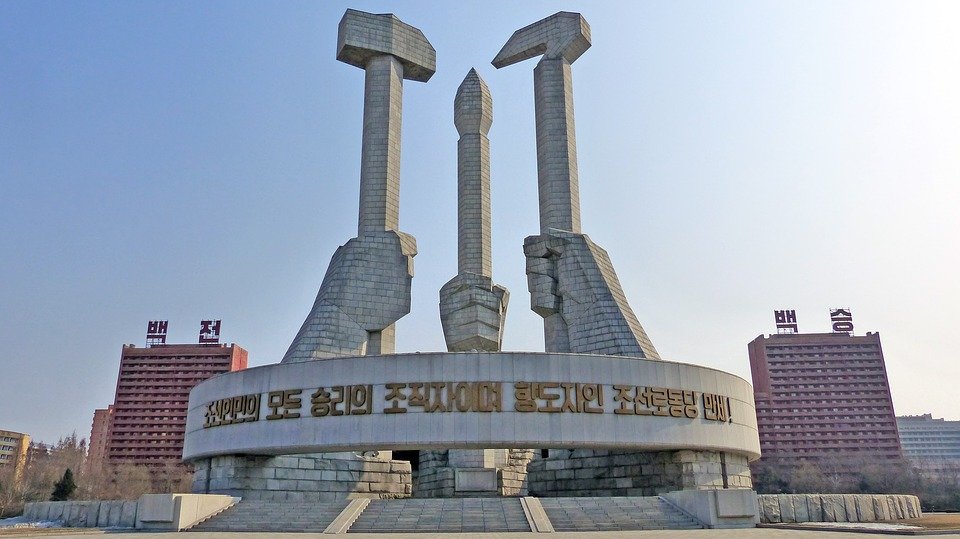The NSWG’s expertise is drawn from the experience and knowledge of our membership, covering key nuclear issues in U.S. foreign policy. We have worked with senior representatives from the White House, Congress, and the larger policy community to:
Elevate the discussion
Redress the polarization
Facilitate better understanding
The Nuclear Security Working Group brings together current and former practitioners and experts to address major challenges across the spectrum of nuclear security issues. From rebuilding bipartisan consensus on U.S. nuclear strategy to assessing nuclear risks in Asia, our members are at the forefront of debates on the future of nuclear security.


American Nuclear Strategy and Policy
The NSWG serves to restore bipartisan consensus on the fundamentals of nuclear policy. Democrats and Republicans once openly discussed and agreed on the role nuclear weapons play in deterring attacks on the United States and its allies. Both parties once recognized the national security benefits of diplomatic engagement with nuclear adversaries and the importance of preventing nuclear proliferation. Today that consensus has frayed. Increasingly, perspectives that were shared by both parties have instead become targets of partisan rancor.
The politicization of nuclear policy, in turn, threatens to upend the stability necessary to plan for the future and address emerging challenges. The modernization of the United States’ aging nuclear arsenal, ensuring the long-term stability of the U.S.-Russia nuclear relationship, efforts to address emerging threats, and policies to stem the spread of nuclear weapons—these all suffer when Democrats and Republicans cannot engage in robust dialogue grounded in expertise and mutual trust. The NSWG works to inform and promote dialogue on the role of nuclear weapons, nuclear diplomacy, and nonproliferation in pursuit of the national interest.
Find an Expert

Nuclear Bipartisanship
The NSWG is a leader in promoting bipartisan nuclear discourse in the U.S. Congress.
The Congress plays a critical role in all aspects of U.S. nuclear policy. Congressional appropriations and authorization affect the size and capabilities of U.S. nuclear forces, sustain U.S. and multilateral nonproliferation initiatives, and contribute to the peaceful uses of nuclear technology. The Congress is also is the principal link between the American people and the intricacies of nuclear statecraft. Elected officials have the legal and moral responsibility to take an active interest in nuclear issues to promote informed nuclear decision-making. Unfortunately, there is a deficit of subject-matter expertise on Capitol Hill. Most Congressional staffers are generalists with broad knowledge about policy and government, developed through years of working closely with elected representatives. Familiarity with nuclear issues has declined significantly since the 1990s, and Members of Congress and the Senate are increasingly hard-pressed to access non-partisan expertise.
NSWG members and staff maintain close working relationships with legislators from both parties. Now in its second year, the NSWG Congressional Nuclear Security Fellowship embeds nuclear and national security experts in Republican and Democrat House and Senate offices. This provides the Congress with trusted, nonpartisan information and insight on the full range of nuclear policy challenges.
Find out more about the Fellowship Program here.
Find an Expert

Nonproliferation policy
The spread of nuclear weapons poses a threat to U.S. national security and the security of its allies and partners around the world. Countering this threat requires marshaling every available tool of statecraft, from specialized military capabilities and economic instruments to diplomacy and international cooperation. The United States once led a global effort to curb the spread of technologies and materials that could be used to manufacture nuclear weapons. American leadership and support for this endeavor reflected a bipartisan consensus that the emergence of new nuclear powers would make the United States and its allies less secure.
Today, however, the international nonproliferation regime is under considerable strain. North Korea’s continued violation of international nonproliferation treaties has cast doubt on the ability of international instruments and opinion to compel good behavior. Moreover, the international consensus that once existed in support of robust monitoring and enforcement of nonproliferation rules has frayed, and Russia leads the charge in opposition to measures that could strengthen international inspections. The U.S. government continues to retain robust capabilities to monitor and affect WMD developments, but these efforts are increasingly disorganized—a consequence of the lack of high-level attention and cross-party consensus in Congress on the importance of the issue and the merits of a whole-of-government response.
With strong working relationships with key officials and offices on Capitol Hill, NSWG is well-positioned to sustain an informed and non-partisan dialogue on the future of efforts to prevent the spread and use of nuclear weapons.
Find an Expert

Asia
From the risks posed by North Korea’s burgeoning nuclear arsenal to the ongoing development of nuclear energy, Asia faces a range of nuclear challenges. NSWG members are at the forefront of discussions on China’s military and foreign policy, U.S.-Japan relations, and U.S. strategic planning for future conflicts in the Asia-Pacific. NSWG meetings and events bring together senior practitioners and Asia experts to identify pragmatic solutions to these challenges, furthering the interests of the United States and its allies.
Find an Expert